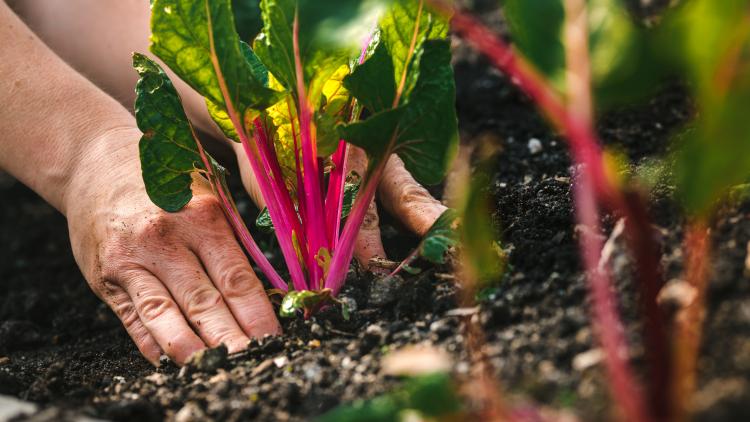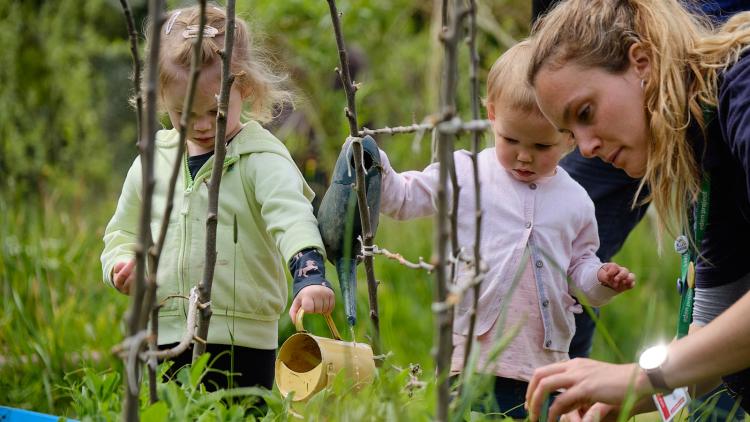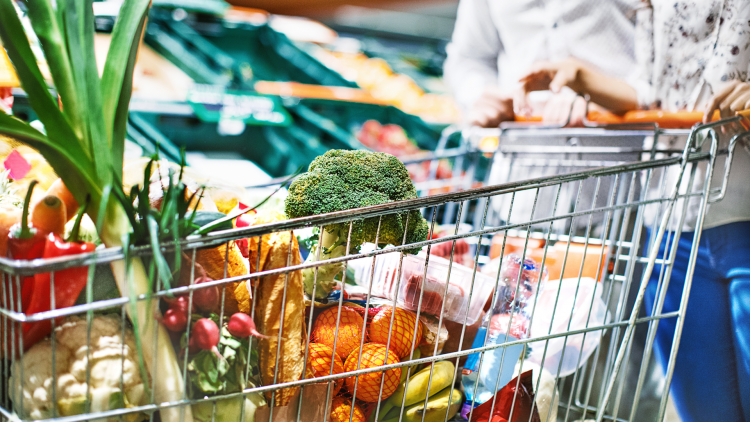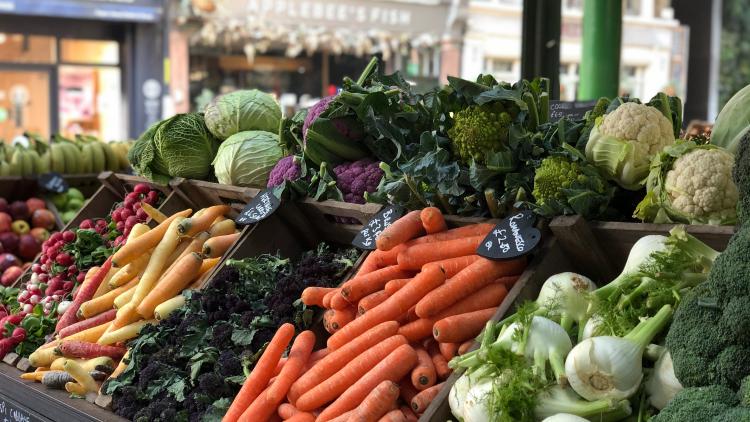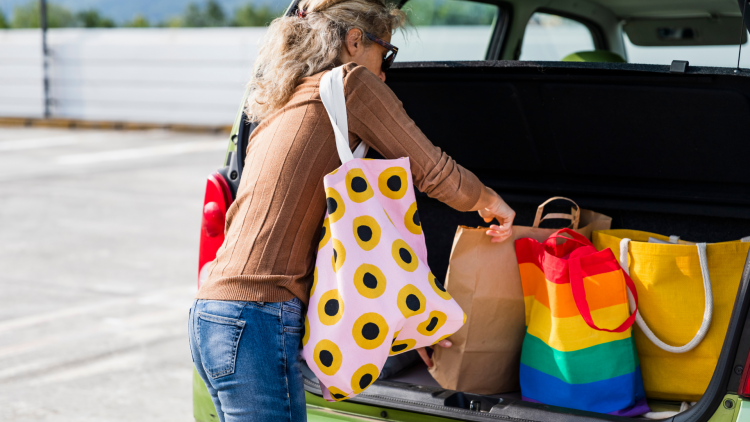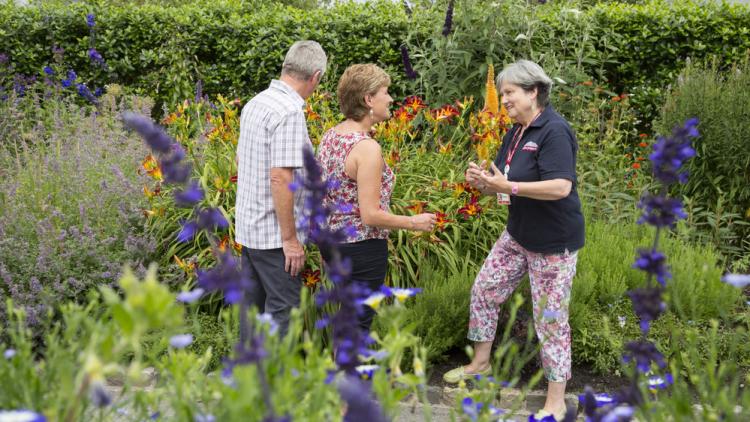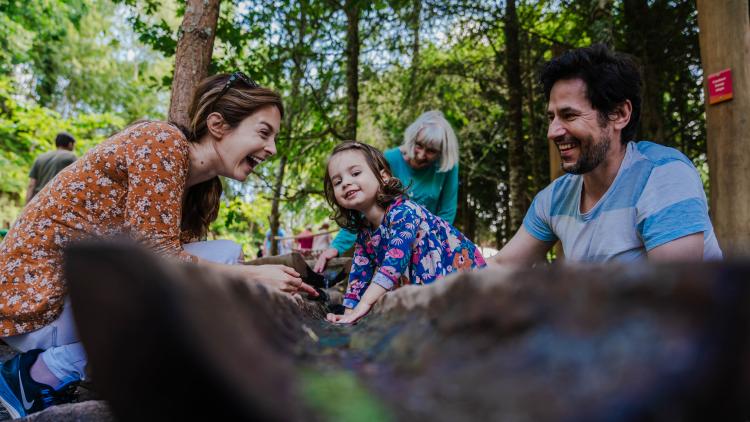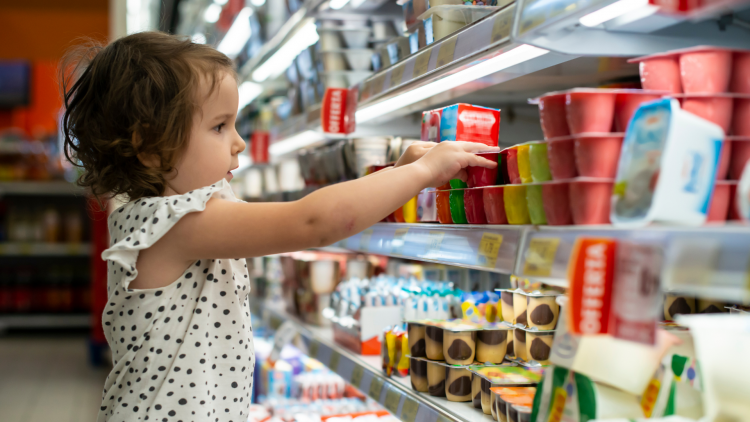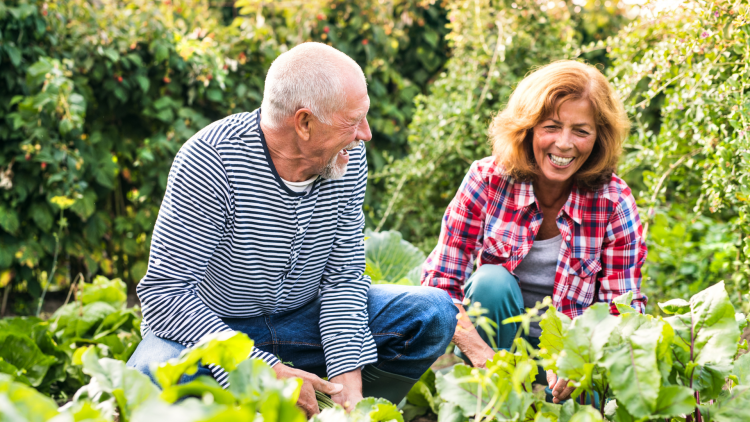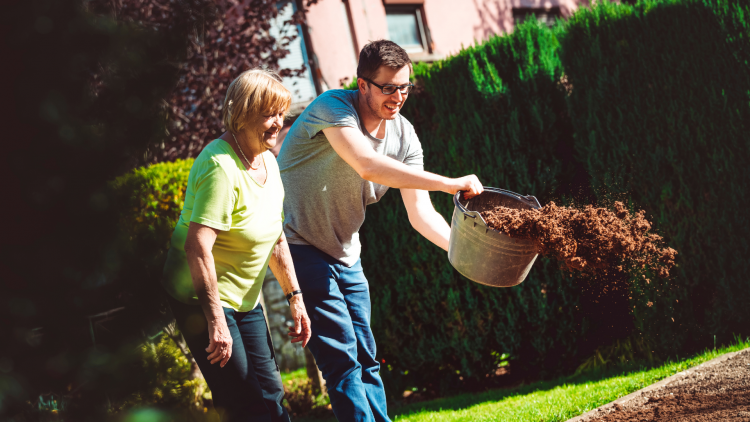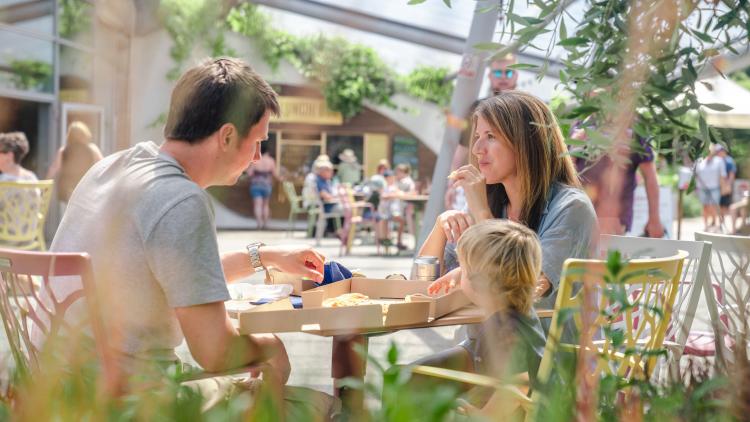We sort and measure over 20 different waste streams at our on-site recycling facility, enabling us to analyse the data to make decisions about where to focus waste reduction efforts. We make it easy for our visitors to separate their leftovers into our clearly labelled recycling bins, helping them connect with the sustainability story behind their food.
We work closely with local recycling companies to ensure as much as possible is being recycled into new material or, as a last resort, into energy.
We’re pleased to say our paper cups are made into reusable cups which we sell in the shop, our coffee grounds are turned into fuel pellets and our vegetable oil into biodiesel.
We also turn kitchen scraps and leftovers from our cafés into compost for our world-famous gardens. An on-site composter converts food waste created here into a nitrogen-rich soil enhancement that our gardeners use to feed their impressive collection of plants.

